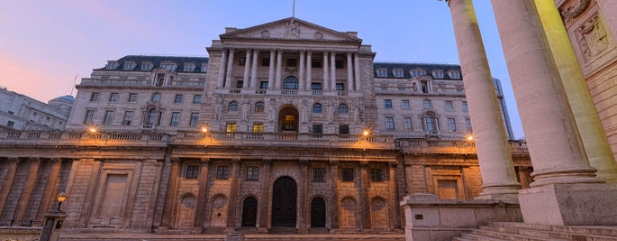Archived article
Please note that tax, investment, pension and ISA rules can change and the information and any views contained in this article may now be inaccurate.
What does the interest rate rise mean for you?

Interest rates have risen for only the second time in the past decade, and are now the highest they’ve been since 2009 – when rates were slashed after the stock market crash.
The Bank of England’s monetary policy committee decided to increase the so-called Bank Rate from 0.5% to 0.75%. The nine-strong committee voted unanimously on the move, saying that the UK’s economy was now strong enough to withstand the hike.
The move had been anticipated ahead of the announcement, as inflation (the measure of the rise in prices in the UK) has been above the Bank of England’s 2% target for a long time.
However, the Bank had been expected to increase the rate in May this year, but U-turned at the last minute after the Beast from the East cold weather at the start of the year hampered consumer spending – hitting the economy’s growth.
Last week’s move is the first time interest rates have been set at 0.75%, and follows a hike from 0.25% to 0.5% last November. But what does the rate hike mean for you and your finances?
THE EFFECT ON SAVERS
Those with savings sitting in cash bank accounts may be jumping for joy, that interest rates will move off record lows and they will get higher returns on their money.
However, that excitement may be short lived as banks rarely pass on all of the rate hike to their customers.
Since the interest rate rise in November 2017 the average interest rate on easy-access savings accounts has only increased by 0.07 percentage points.
That’s just 70p for every £1,000 you have saved, and is far from the 0.25 percentage point hike from the Bank of England. What’s more, half of savings accounts didn’t see any increase in interest.
However, it’s likely that the best-buy accounts – so those offering the highest rates – will see an increase in rates. It means that savvy savers who are willing to dedicate a bit of time to hunting for the best deal can now find better deals.
The best-paying accounts are likely to be from newer providers, which are often run online only or via apps, rather than from the well-known high-street name banks.
The best way to find the top paying cash ISA accounts, or savings accounts is to go to websites such as Moneyfacts.co.uk or SavingsChampion.co.uk, which publish the top-paying accounts.
WHAT ABOUT MORTGAGE HOLDERS?
The impact on those with mortgages depends on the type of mortgage that you’re are on. There are around 3.5m people with a variable or tracker rate mortgage, and they will see their interest rate, and so monthly costs, increase immediately – on the same day as the hike many people had already had messages from their mortgage companies warning them their costs would increase.
For someone with a £200,000 mortgage, the 0.25 percentage point increase in interest rates will cost around £300 extra a year. Meanwhile, someone with a £350,000 mortgage will see costs increase by around £500 a year. You can check based on your personal circumstances either by contacting your mortgage company, or using a rate rise calculator here: www.landc.co.uk/calculators/mortgage-interest-rate-calculator/
However, more people have fixed-rate mortgages, and they won’t see any increase in their costs. These mortgages have the rate determined for a set period, usually three or five years, regardless of what the Bank of England does to rates. However, it means that when these homeowners’ fixed rate deals end the new deals offered to them will likely be more expensive.
Some people attempted to get ahead of the interest rate rise and lock-in a fixed rate deal to avoid paying the higher costs. However, banks and building societies are savvy and many had already increased their mortgage rates in anticipation of the Bank of England’s move.
The biggest change you can make to cut your mortgage costs is to ensure that you’re not on your lender’s Standard Variable Rate. These are the least competitive rates offered by mortgage companies, and is often what you will default onto once a fixed rate deal ends. They are often dramatically higher than other rates on the market.
WHAT ABOUT OTHER PEOPLE IN DEBT?
There are a large number of people in the UK who are in debt, and we are more of a nation of borrowers than savers. Research from the Office for National Statistics found that in 2017 households on average spent £900 a year more than they earn – the highest figure on record.
Thanks to the interest rate rise, the cost of debt will increase, which will hurt those who are already in debt. It means that the rates on loans, credit cards and other credit will increase.
Laura Suter, personal finance analyst, AJ Bell
Important information:
These articles are provided by Shares magazine which is published by AJ Bell Media, a part of AJ Bell. Shares is not written by AJ Bell.
Shares is provided for your general information and use and is not a personal recommendation to invest. It is not intended to be relied upon by you in making or not making any investment decisions. The investments referred to in these articles will not be suitable for all investors. If in doubt please seek appropriate independent financial advice.
Investors acting on the information in these articles do so at their own risk and AJ Bell Media and its staff do not accept liability for losses suffered by investors as a result of their investment decisions.

 magazine
magazine











